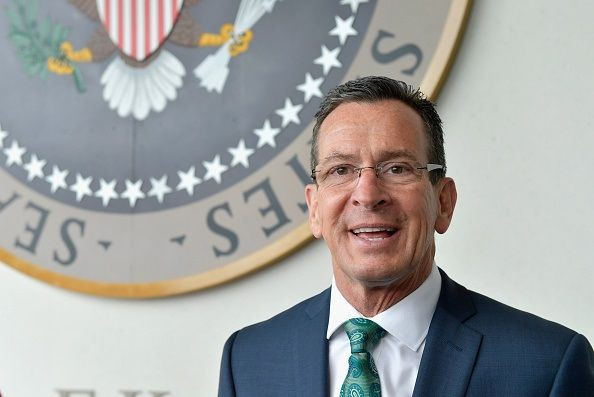Cigna-Anthem Deal: Connecticut Ethics Officials To Vote On Conflict-Of-Interest Controversy

UPDATE: 5:50 p.m. EDT: Gov. Malloy's office has issued a statement saying if ethics officials rule that conflict-of-interest laws have been violated, the governor's administration will move to rectify the situation.
Original story:
Connecticut ethics officials announced Tuesday that they'll consider a formal petition to evaluate whether the state’s top insurance regulator has violated conflict-of-interest laws by overseeing a regulatory review of the largest health insurance merger in American history.
The Connecticut Office of State Ethics said its board will vote Thursday on whether to look into the matter, after an International Business Times investigation documented the financial ties between Gov. Dan Malloy’s insurance commissioner, Katharine Wade, and Cigna — the company that is seeking regulatory approval for a merger with Anthem. The IBT story prompted a formal petition from the nonpartisan watchdog group Connecticut Common Cause, asking state officials to rule on whether Wade’s personal and professional ties to the company constitute a violation of the state’s ethics laws. She was formerly a Cigna lobbyist, 1992-2013, and her husband still works at the company.
On the same day as the announcement, new details emerged about the pivotal role being played by the Malloy administration in the national regulatory process of the merger — which groups representing consumers and physicians say could raise healthcare prices for 53 million people across the country. Emails obtained by IBT from Indiana officials show that Wade’s agency has conducted regular conference calls about the Cigna-Anthem merger with state regulators across the country. In all, the emails document eight such calls since September 2015.
According to the emails, the calls about the Anthem-Cigna merger proposal were organized through the National Association of Insurance Commissioners and done “on behalf of the Connecticut Insurance Department.” In the weeks before the release of the emails, a spokeswoman for the NAIC, which is the trade association for insurance regulators, told IBT that the group “does not advise on merger issues.”
In advance of the vote by Connecticut’s ethics board on Thursday, Connecticut Common Cause wrote a letter to the agency declaring it is "abundantly clear that any review of the insurance mergers led by Commissioner Wade will be irredeemably tainted and will not serve the needs of consumers or the state.”
In a statement emailed to IBT, Malloy's office said if ethics officials conduct an inquiry and find that Wade's involvement in the merger review violates state law, the administration would move to rectify the situation.
"We have always said, consistently, that if the Ethics commission identified a problem, then we would undoubtedly follow their guidance. So far, that has not been the case," said Malloy's spokesperson Chris McClure. "The Commissioner has previously and proactively sought that independent guidance, and what’s been made clear from their end is that everything is being handled appropriately. However, as we’ve always said, should Ethics choose to reverse course or change direction from the guidance they have previously given the Commissioner, then we would absolutely follow it.”
For her part, Wade has rejected mounting calls by grassroots groups and legislators for her to recuse herself from the merger proceedings.
"I am following the Connecticut ethics statutes and I have taken the appropriate measures that allow me to carry out my duties as Insurance Commissioner,” she has said. “I am confident that nothing in my professional background or in my family's associations will adversely affect my ability to take action fairly, objectively and in the public interest. Consumer protection is first and foremost the mission of state insurance regulators and safeguarding the best interest of Connecticut consumers is a mission I take very seriously."
On Thursday, Connecticut officials are not expected to rule on whether Wade violated state ethics laws -- but merely on whether the agency will even conduct a formal review of the situation.
Carol Carson, executive director of the office, told IBT that the agency’s general counsel has recommended that the board approve Common Cause’s petition for such a review. However, the board that will be voting on whether to formally review Wade’s role is dominated by appointees of Malloy and his Democratic allies. In all, there are five Democratic appointees on the board, with three coming from the governor. The other two board members were appointed by Republicans.
© Copyright IBTimes 2024. All rights reserved.






















